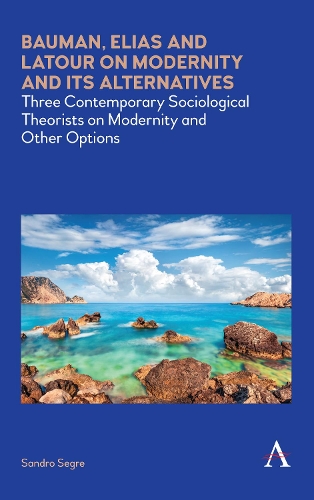
Bauman, Elias and Latour on Modernity and Its Alternatives: Three Contemporary Sociological Theorists on Modernity and Other Options
(Hardback)
Publishing Details
Bauman, Elias and Latour on Modernity and Its Alternatives: Three Contemporary Sociological Theorists on Modernity and Other Options
By (Author) Sandro Segre
Anthem Press
Anthem Press
31st March 2020
United Kingdom
Classifications
Professional and Scholarly
Non Fiction
Society and culture: general
Anthropology
301.0922
Physical Properties
Hardback
114
Width 153mm, Height 229mm, Spine 26mm
454g
Description
A comparison of the sociological works of three contemporary authors on modernity and its alternatives.
Bauman, Elias and Latour on Modernity and Its Alternatives provides a comparison between the conceptions of modernity and its alternatives in the works of Bauman, Elias and Latour. Their work and research are linked to their distinct views on modernity and its alternatives. For Bauman, the rationality, effectiveness and impersonality that characterize present-day bureaucratic apparatuses are the distinguishing features of modernity. Its post-modern or 'liquid' alternative has none of these traits. For Elias, modernity has two different and contrasting faces, that of civilization and barbarity. Elias conceives of civilization as a process connoted by self-control and pacification, which prevail as a consequence of the restraint which honor and morality exert on individuals. By contrast, the breakdown of civilization involves barbarity. For Latour, modernity if defined by a separation between society and nature, or humans and non-humans, has never existed. By virtue of their intimate association, humans and non-humans have formed hybrids, whose proliferation is the hallmark of our age. Modernity, therefore, has never prevailed. Alternatives to hybrids are, in the current age, failed hybrids. The set of alternatives is then as follows: modernity vs. post-modernity (Bauman); civilization vs. barbarity (Elias); and successful vs. unsuccessful hybrids (Latour).
Author Bio
Sandro Segre was professor of sociology and sociological theory at the University of Genoa, Italy, until his retirement in 2015.
